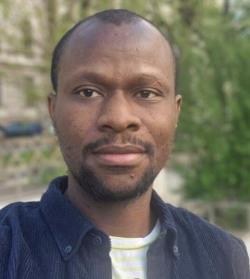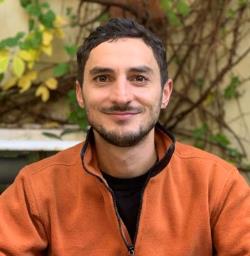Data and Trust For Health and Wellness SDG3 with a reference to Climate Change
IGF Dynamic Coalition on Data Driven Health Technologies
Session 199
Excellence in communication, data collection and management, for quality AI and technology applications
It is critical that the quality of data entering AI and other data based systems is clear; relevant; accurate; readable; meaningful; fit for purpose; translatable; free of bias; creditable; honest; free of error and bias; culturally aware; aware of skill levels; free of mis-information; free of dis-information; legitimate; complies with privacy and other legislation; aware of communication styles; legal; factual; trusted and so forth. Poor data quality input can result in poor data outputs. This can have serious consequences for health and wellness data reporting and use, as well as for all applications of ICTs.
Data that goes on to be shared with secondary systems such as for AI data gathering can be prone to poor quality and even hallucinations, if the primary data gathering system is not secured for a high data quality standards for pattern building, profiling, benchmarking, meta data tagging, statistical analysis etc. Unstructured data carries risk. Unintended consequences can occur, with poor data quality, causing serious issues for the risk management of data. With regards to climate change issues impacting health, it is important that the public communications are clear. Human communication or messaging must be consistent and clear. Interpersonal communications between patient or care-giver and the medical profession must be trusted, ethical and at the correct skill, knowledge level, and free of bias and harm.
This session will explore view-points on securing data quality for quality data systems from the perspective of health, wellness and climate change and for ICTs in general. Examples of technology in use, that support trusted data sharing will be examined, e.g. blockchain.









-
 C1. The role of governments and all stakeholders in the promotion of ICTs for development
C1. The role of governments and all stakeholders in the promotion of ICTs for development
-
 C2. Information and communication infrastructure
C2. Information and communication infrastructure
-
 C3. Access to information and knowledge
C3. Access to information and knowledge
-
 C4. Capacity building
C4. Capacity building
-
 C5. Building confidence and security in use of ICTs
C5. Building confidence and security in use of ICTs
-
 C6. Enabling environment
C6. Enabling environment
-
 C7. ICT applications: benefits in all aspects of life — E-health
C7. ICT applications: benefits in all aspects of life — E-health
-
 C8. Cultural diversity and identity, linguistic diversity and local content
C8. Cultural diversity and identity, linguistic diversity and local content
-
 C9. Media
C9. Media
-
 C10. Ethical dimensions of the Information Society
C10. Ethical dimensions of the Information Society
-
 C11. International and regional cooperation
C11. International and regional cooperation
This session supports C7. ICT applications: benefits in all aspects of life — E-health. However, the discussion is applicable across most sectors, as it focuses on "data gathering" and "processing" a common feature of all data based systems.
-
 Goal 2: End hunger, achieve food security and improved nutrition and promote sustainable agriculture
Goal 2: End hunger, achieve food security and improved nutrition and promote sustainable agriculture
-
 Goal 3: Ensure healthy lives and promote well-being for all
Goal 3: Ensure healthy lives and promote well-being for all
-
 Goal 4: Ensure inclusive and equitable quality education and promote lifelong learning opportunities for all
Goal 4: Ensure inclusive and equitable quality education and promote lifelong learning opportunities for all
-
 Goal 6: Ensure access to water and sanitation for all
Goal 6: Ensure access to water and sanitation for all
-
 Goal 7: Ensure access to affordable, reliable, sustainable and modern energy for all
Goal 7: Ensure access to affordable, reliable, sustainable and modern energy for all
-
 Goal 9: Build resilient infrastructure, promote sustainable industrialization and foster innovation
Goal 9: Build resilient infrastructure, promote sustainable industrialization and foster innovation
-
 Goal 11: Make cities inclusive, safe, resilient and sustainable
Goal 11: Make cities inclusive, safe, resilient and sustainable
-
 Goal 13: Take urgent action to combat climate change and its impacts
Goal 13: Take urgent action to combat climate change and its impacts
-
 Goal 14: Conserve and sustainably use the oceans, seas and marine resources
Goal 14: Conserve and sustainably use the oceans, seas and marine resources
-
 Goal 15: Sustainably manage forests, combat desertification, halt and reverse land degradation, halt biodiversity loss
Goal 15: Sustainably manage forests, combat desertification, halt and reverse land degradation, halt biodiversity loss
-
 Goal 17: Revitalize the global partnership for sustainable development
Goal 17: Revitalize the global partnership for sustainable development
Goal 3: Ensure healthy lives and promote well-being for all
Goal 17: Revitalize the global partnership for sustainable development with particular reference to climate change
Dynamic Coalition on Data Driven Health Technologies (DC-DDHT) | Internet Governance Forum
Internal Control | COSO
Reference, ISO, IEEE etc.
Guidance on Data Quality - Canada.ca
The Government Data Quality Framework - GOV.UK
Data.europa.eu - Data Quality Guidelines